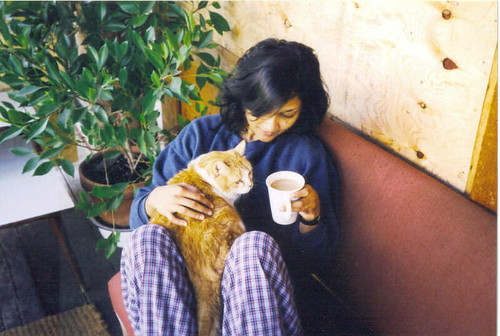Cheek by Jowl

Cheek by Jowl
Talks & Essays on How & Why Fantasy Matters
Ursula K. Le Guin
I am yet to complete reading the Earthsea series by the author, having read three books of the same. But, it is her prolific writing and unique and thoughtful style that has kept me exploring her other works besides the popular fantasy series.
Cheek by Jowl is a collection of Ms.Le Guin's thoughts on Fantasy Writing, as the subtitle notes. With the modernization of our lives, our connection to nature is eroding fast. As our lives get homogenized under relative comfort leaving little room for maintaining the connection to our very humanness, it becomes imperative that fantasy literature create and preserve alternate worlds not reliant on the dominant single species.
In The Critics, the Monsters, and the Fantasists section, regarding critics who dismiss fantasy, the author states with concern how prejudice has evolved so that:
...no fiction is to be taken seriously except various forms of realism, labeled "serious". The rest of narrative fiction is labeled "genre" and dismissed unread.
The examples for an exercise to understand and apply a standard to a genre were quite interesting:
It might be an entertaining and educative exercise in fiction course to make students discover inappropriate standards by using them. For example: Judge The Lord of the Rings as if it were a late-twentieth century realistic novel. (Deficient in self-evident relevance, in sexual and erotic components, in individual psychological complexity, in explicit social references...)
Judge Moby Dick as a science fiction...
Judge Pride and Prejudice as a Western...
And to reverse the whole misbegotten procedure: Judge modern realistic fiction by the standards of fantasy. (A narrow focus on daily details of contemporary human affairs; trapped in representationalism, suffocatingly unimaginative, frequently trivial, and ominously anthropocentric.)
Left to me, I might end up quoting the whole book. Although it is incidental that she lives in my city and borrowed books from my county library for her research, my heart somehow swells up at this simple fact.
Her defense of children's literature spoke directly to me. Off and on I've been told by friends that a certain type of realistic fiction is somehow inherently superior to (childish) fantasy. These days it is easier to dismiss the prejudice I encounter against fantasy literature (of which there are good and bad, much like realistic fiction) and novels for young children as stemming from ignorance or lack of understanding, of refusing to broaden one's scope and critically analyzing the large body of work still appreciated today, generations after they were first published.
The modernists wanted so badly to be perceived as grown-ups that they left a legacy of contempt for children's literature, which is rarely questioned.
Her thoughts on animals in literature are fierce and exhaustive. Identifying three periods - tribal/prehistoric; farm, village, and city; and hi-tech industrial, each with their own stories about animals, we see the animals starting out as protagonists in myths of the oral tradition, then becoming elements in folktale and fairytale with generous intermingling with humans, to post-industrial literature in which animals are becoming quite irrelevant, relegated to appearances in children's tales for amusement.
The more we herded and bred animals for food and work, domesticating and dominating them, and the more we lived in cities among other humans only, the easier it was to separate ourselves from other species, to assert difference and dominance, denying kinship and its obligations.
As is the case with any genre, the author points out that:
Meaningless imitation, formula repetition, is always a problem when a genre has mastered its techniques and refined its subject matter
conceding the fact that there is the underlying formula of magic, battle of Good vs. Evil, dragons and wizards and suchlike that makes it easy to produce fantasy by the yard.
Fantasy has become a big commercial genre. All you need is a map with weird names. Everybody has a sword and does sorcery; there is no known basis to the economy, and the obligatory war between Good and Evil is going on. The Good guys and the Evil guys are hard to tell apart since all of them use violence as the response to all situations and solution to all problems. The Good guys are the ones ones that win in the third volume of the trilogy.
Before I end up quoting the whole book and getting in trouble with my beloved author (or her publishers more likely), let me stop here by saying that I wish I had heard these talks rather than just read the transcripts. But am glad I read them at all.
[image source: http://www.ursulakleguin.com/UKL_info.html]
Labels: book review, non-fiction


4 Comments:
I grew up with her -- cutting my teeth on her science fiction, and switching my allegiance to fantasy right when she was beginning the Earthsea books. I've read those over and over. Even when she writes a bad book, which she occasionally does -- Always Coming Home, for instance -- it's much more interesting than most writers' good books. She is just so thoughtful and wide-ranging, so acute and so humane. She makes the universe a larger place. I'm terribly grateful to her. And yes, though I've never met her, the fact that she's a fellow Portlander delights me. She puts a lot of recognisably Northwest landscapes in her books!
Wonderful that you stopped by, Dale! I am in awe of her thoughtful prose especially regarding our universe - "Nature" as the Industrialized civilization started labeling it :)
Sheela.
oh yes. this speaks a lot to me!
Ursula le guin is an amazing author and just one book of hers - 'The left hand of darkness' is enough to sings paeans of her. Have you read that book?
I often see/meet a lot of folks who think people reading fantasy/sci-fi books are unrealistic and live in a dream world. I find it very difficult to convince them otherwise. This book should be helpful for me in these cases.
Sathish - remember our email exchange a while back about Ms.Le Guin and The Left hand of darkness... sadly yet to finish that book.
Cheek By Jowl spoke to me and made me think a little deeper about where such prejudices might come from regarding implied superiority of certain genres...
Post a Comment
<< Home